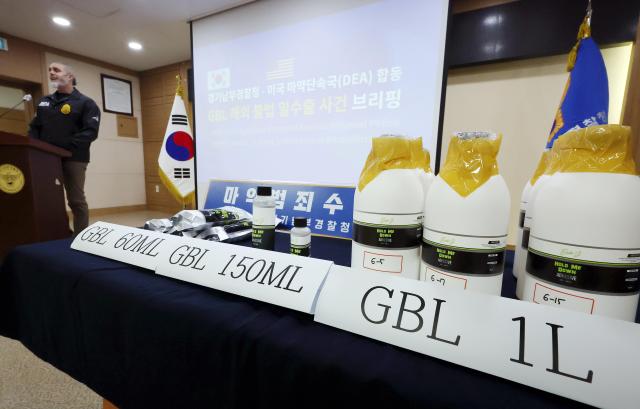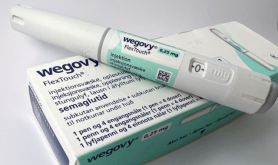
SEOUL, October 02 (AJP) - South Korea's first joint drug operation with the U.S. Drug Enforcement Administration (DEA) has exposed a shift that officials had long warned about. The country is no longer just a market for narcotics but is being used as an exporter and transit hub in the regional drug trade.
Police in South Gyeonggi Province said Wednesday that they arrested a 35-year-old woman who ran a beauty supply export company in Uiwang and a man in his 20s who helped with shipments. Three others were booked without detention. Investigators said the group exported more than 8 tons of GBL, the chemical used to make the synthetic drug GHB, to the United States and Australia between June 2024 and June 2025. The value was estimated at 159 billion won, or about $113.5 million.
The bust marked the first time South Korea has caught a domestic ring sending drug precursors abroad. It also came just months after DEA Asia-Pacific chief John Scott warned in Busan that "international crime organizations are abusing South Korea's infrastructure as a logistics hub to smuggle narcotics worldwide." He said Mexican cartels, facing losses from tighter U.S. border controls, were turning to Asia and the Pacific.
Officials say the pattern is clear. In April, Korean authorities discovered two tons of cocaine hidden aboard a Norwegian cargo ship docked in the eastern port city of Gangneung, traced back to routes through Mexico, Ecuador, and Panama. And now, the GBL export case shows Korea not only being used as a transit stop but as a source of supply.
"The partnership between our two agencies has become increasingly important as globalized drug trafficking organizations exploit borders, and as Korea faces rising levels of illegal narcotics activity," said Morgan Mathis, the DEA's country director in Korea.
South Korea was once known internationally as a "drug-free nation," but that image has eroded. According to the Supreme Prosecutors' Office, 23,022 people were arrested on narcotics charges in 2024, equal to 44.7 per 100,000 people. The figure is nearly double the level in 2015, when the United Nations determined South Korea no longer met the threshold of a drug-free country. Most offenders are in their 20s and 30s, and the number of teenage offenders has more than tripled in recent years.
Experts point to the spread of anonymous social media platforms, cryptocurrency payments, and non-contact distribution methods such as "throw-off" deliveries as drivers of the surge. These systems have made narcotics easier to buy and sell domestically, while also giving traffickers channels to disguise exports.
The police said that they are moving to tighten inspections on low-value exports, which were exempt from thorough checks and allowed the smugglers to slip shipments through customs. "It shows we must strengthen random sampling and testing procedures even for smaller exports, in order to eliminate blind spots," the South Gyeonggi police said.
Copyright ⓒ Aju Press All rights reserved.


![[K-Pop] Rapper PSY under police investigation over alleged proxy receipt of prescription drugs](https://image.ajunews.com/content/image/2025/08/28/20250828133347942997_278_163.jpg)

